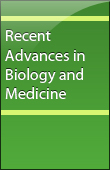


The prevalence of parasitic infections such as malaria, which leads to decrease in hematological indices, the major cause of anemia, constitutes a serious health challenge in many developing countries such as Nigeria. This study investigated the effect of methanol seed extract of Aframomum melegueta on selected hematological indices of 2,4-dinitrophenylhydrazine (2,4-DNPH)-induced anemic rats model. The toxicity study and qualitative phytochemical screening of the extract were carried out using standard procedure. Twenty Wistar rats were grouped into five of four rats each (n 5 4). Group I: Normal control; Group II: Negative control; Group III: administered 20 ml/kg b.w. of Astifer (Standard drug); Group IV and V were administered 200 and 400 mg/kg b.w. of the extract, respectively. The animals of Groups II to V were induced with 2,4-dinitrophenylhydrazine (20 mg/kg b.w.) once daily for seven consecutive days; their blood samples were collected by ocular puncture into heparinized capillary tubes for hematological analysis and animals with packed cell volume (PCV) 30% reduction were considered anemic for the study. The result of the qualitative phytochemical analysis showed that the methanol extract tested positive to alkaloids, carbohydrate, saponins, flavonoids, steroids, terpenoids, and anthraquinones. Acute toxicity and lethality studies on methanol extract showed an oral LD50 equal or less than 5000 mg/kg b.w. in mice. The rats administered 20 ml/kg b.w. of Astifer showed significant (P 0.05) increase in PCV, hemoglobin, red blood cell (RBC) count, white blood cell (WBC) count, and neutrophils count compared with the normal control animals. The rats administered 200 mg/kg b.w. of A. melegueta showed significantly (P 0.05) higher PCV and WBC count; non significant (P 0.05) decrease in hemoglobin count, RBC, platelet, neutrophils and lymphocyte count compared with the normal control animals. The rats administered 400 mg/kg b.w. of A. melegueta showed significant (P 0.05) increase in hemoglobin, platelet, erythrocyte sedimentation rate (ESR) and neutrophils count; non significant (P 0.05) lower PCV, RBC, WBC count, and lymphocyte count compared with anemic rats administered with 0.3 ml of normal saline. It can be concluded that Aframomum melegueta seed has beneficial immunological and hematological properties in Wistar rats and possessed erythropoietic potentials at minimal dose that support its use for treating anemia.